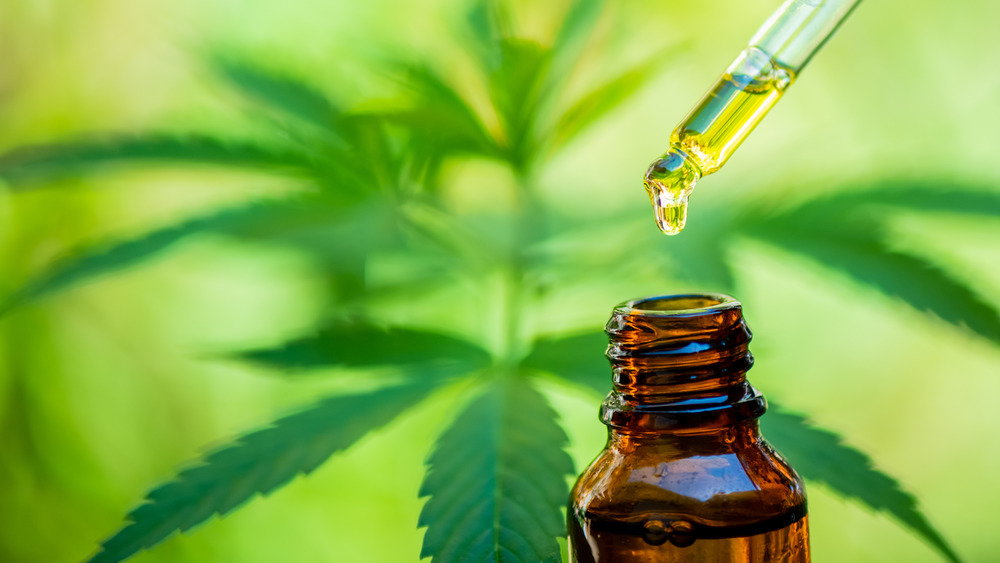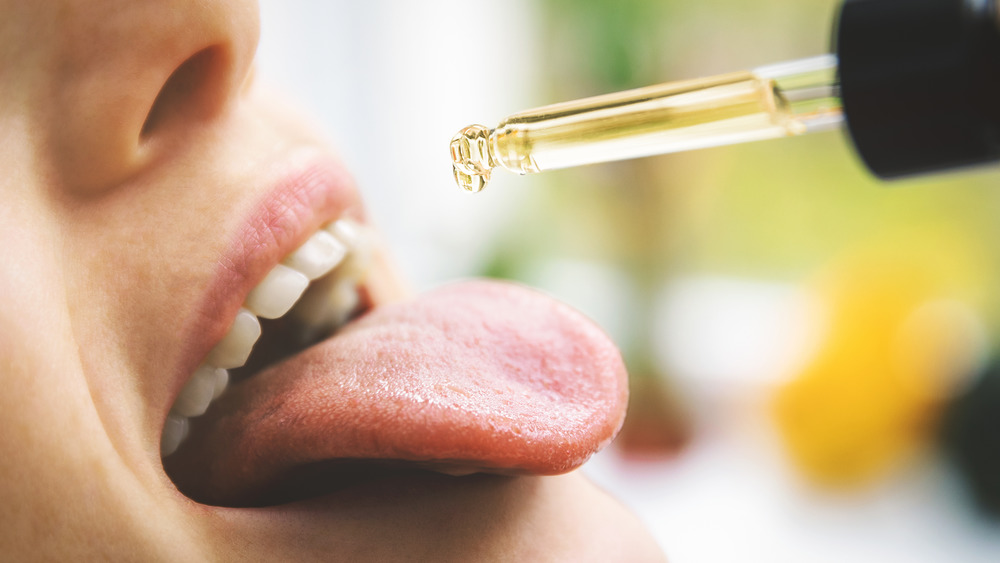How CBD Really Works For Treating Anxiety
With the passing of the 2018 Farm Bill, the U.S. legalized the use of cannabidiol (CBD) made from hemp. While there are still a few states that don't allow the sale or use of CBD, products containing the chemical are gaining in popularity because of their potential for treating a host of medical issues, according to Healthline. One of CBD oil's most promising uses may be to treat conditions related to anxiety.
Hemp and marijuana both come from the same species of cannabis plant. Unlike marijuana, hemp must legally contain less than 0.3% THC. Because of this, CBD that comes from hemp does not give the "high" that marijuana-derived CBD delivers. CBD works by binding with certain receptors on cells in the body and activating them (via NIH). When CB1 receptors in the brain are activated, it creates a feeling of euphoria. CBD does not bind to as many CB1 receptors as THC, and even when it does, it won't produce the same intoxicated effect.
The future of CBD
Scientists are studying the effects of CBD to see if it might help to boost levels of serotonin, a neurotransmitter that plays a part in both anxiety and depression. A person with anxiety often has lower levels of serotonin, the "feel-good" chemical that helps regulate your mood (via Verywellmind). Prescription drugs can be used to treat anxiety, but CBD may offer an alternative therapy. In a study done on lab rats, CBD helped to reduce symptoms of stress and anxiety, such as decreasing the participant's heart rate. A small study was done on humans that showed that CBD helped alleviate anxiety for people who had to complete a public speaking task, via Healthline.
Currently there just isn't enough evidence to prove that CBD is an effective treatment for anxiety. However, there are plenty of smaller studies, studies done on animals, and anecdotal evidence that show promise for CBD as a treatment for the family of anxiety disorders. For now, always consult with a doctor before trying CBD for medicinal use.


